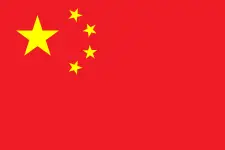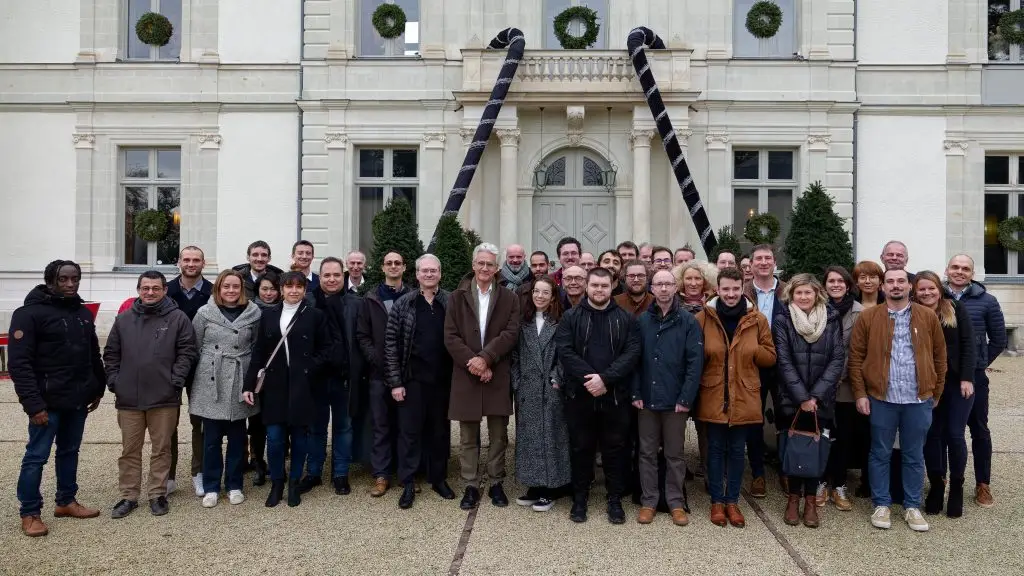
Why a Philosophy conference about Team spirit and trust?
Our tagline “ Unique in NDT” has a deeper meaning than just being related to our extraordinary products.
It also reflects the unique way TPAC is structured and how the organization relates to its employees, customers, and partners. Away from traditional hierarchical models TPAC is a self-organizing structure.
A type of organization that requires a high level of trust for the following reasons :
- Decisions are made collaboratively in a neuron network organization. TPAC is an agile organization where sharing information openly is essential, requiring a high level of trust.
- Action is taken upon consultation between the best-placed people involved and not on the basis of hierarchy. Therefore, initial trust is necessary to mitigate risks, show initiative, take responsibility and contribute to progress and success.
- Self-management is key. This high degree of autonomy works because the trust level within individuals is high. All individuals then make responsible, purpose-driven decisions for the enterprise.
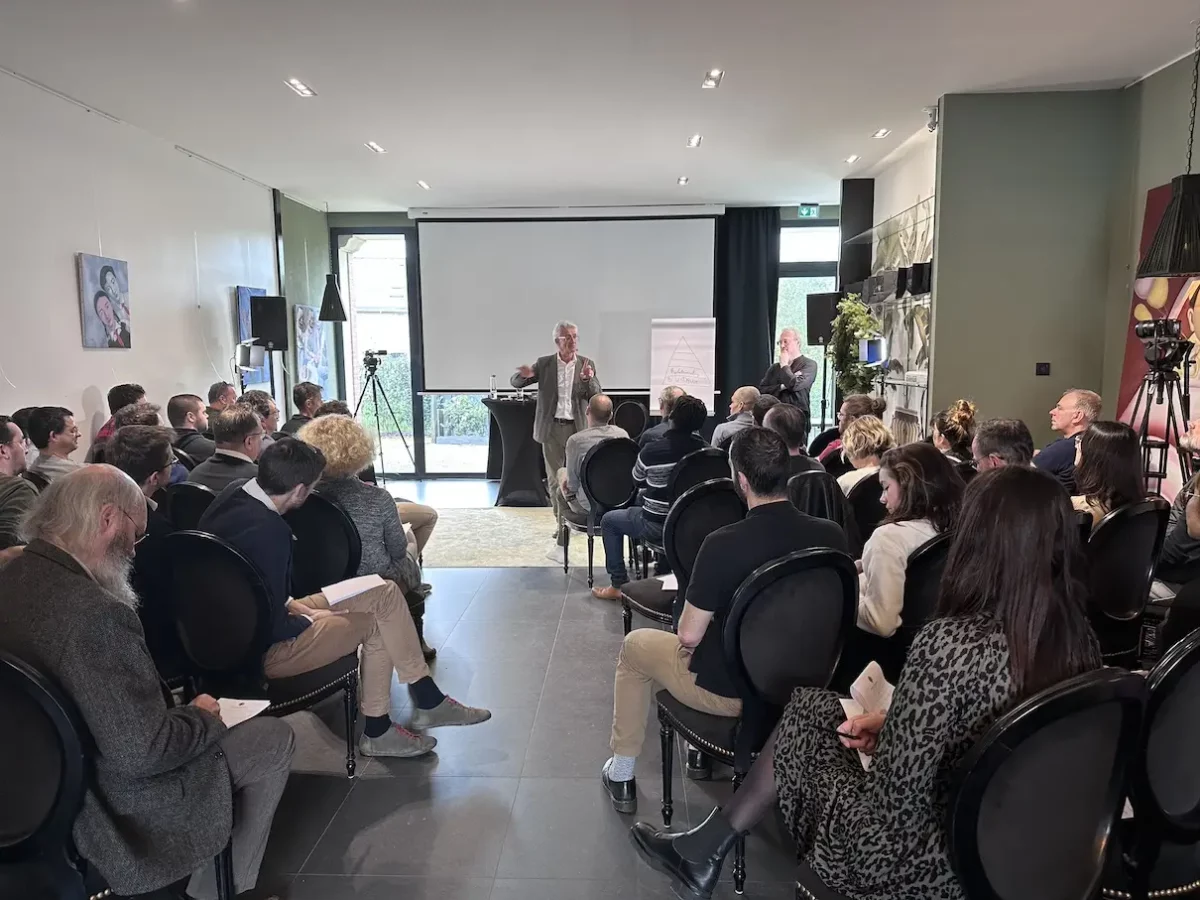
To summarize, at TPAC, trust is of the essence.
We cultivate the conditions for trust in our team, but also with partners, customers, and suppliers, which serves our dedication to NDT (Non-Destructive Testing), our core “raison d’être” (reason for being).
So, what is TRUST?
Key ideas?
A few (of many) we want to share:
💡Trust is a Virtue: Trust as a feeling cannot be imposed. Offering initial trust becomes a powerful catalyst for fostering genuine connections.
💡Solidarity and Trust: Solidarity is always grounded in individual interests converging and forming a collective interest, as a foundational pillar for trust. Individuals therefore stand together in support of a common cause even in challenging times.
💡Power in Shared Desires: Desires fuel human motivation. When individuals communicate what motivates them, and what their desires are, trust is built.
Post conference, we asked our questions and engaged in a 90-minute exchange including the question on happiness, the power of action, and the difference between what’s important and what’s essential. We are extremely grateful to André Comte-Sponville for his time with us!
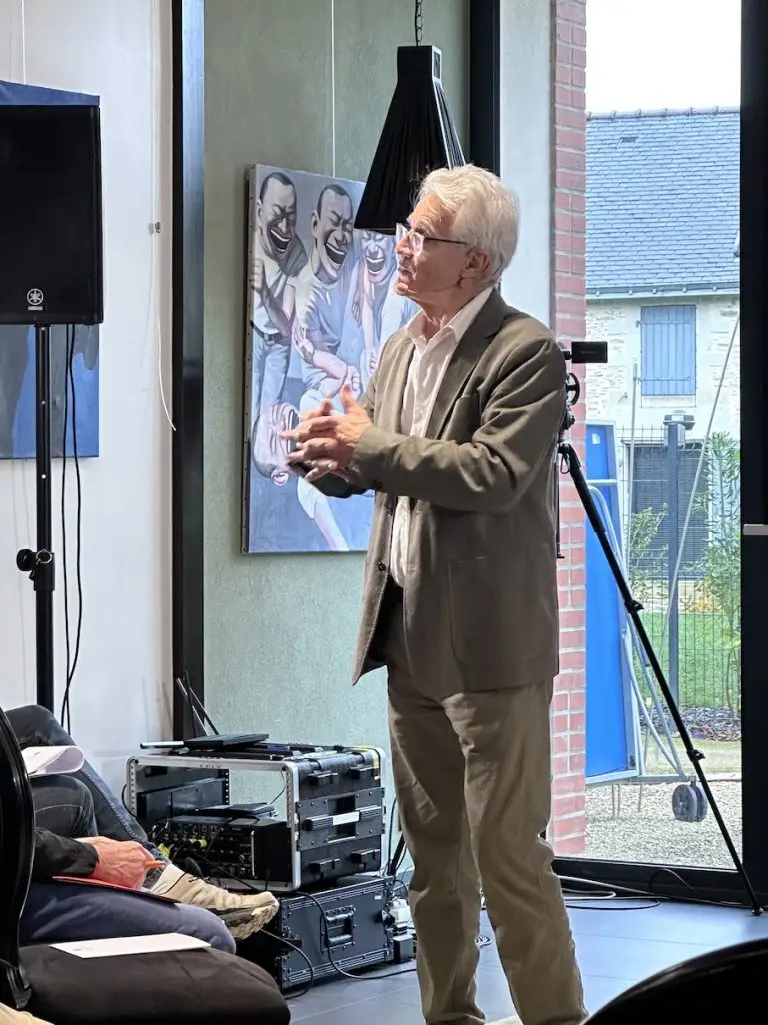
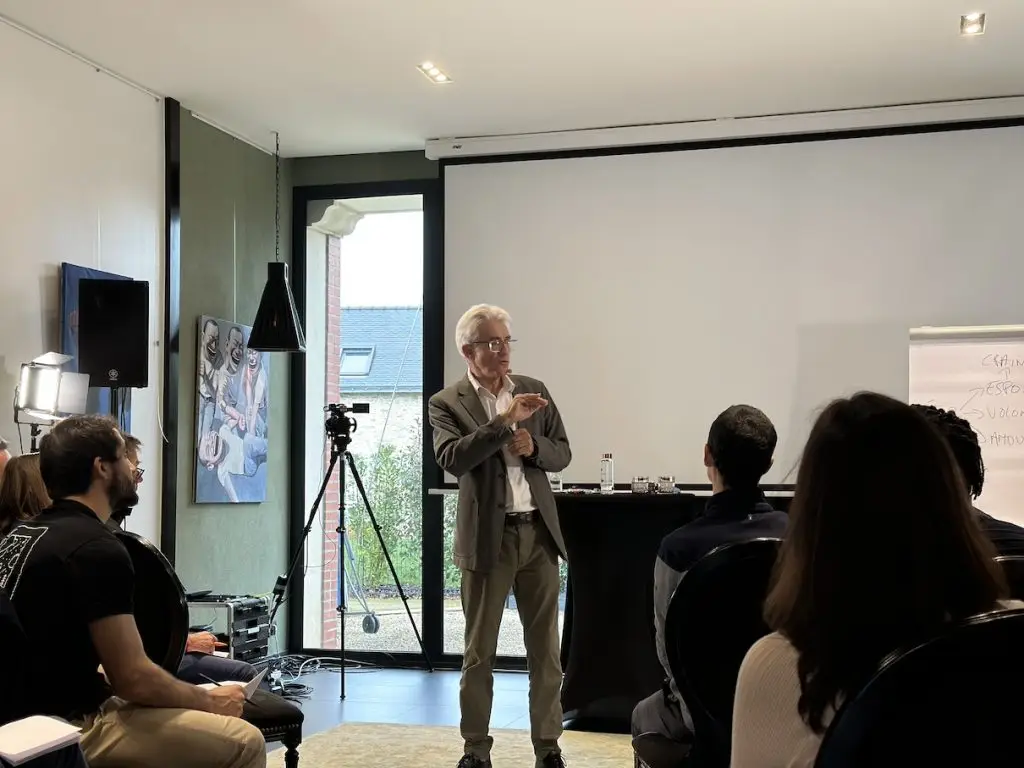
More about André Comte-Sponville ?
Highly esteemed French philosopher who made significant contributions to contemporary philosophy.
He worked on the importance of human values, reason, and ethical conduct in the absence of religious doctrines.
He helps individuals Explore the potential for a meaningful and fulfilling life grounded in humanistic principles.

